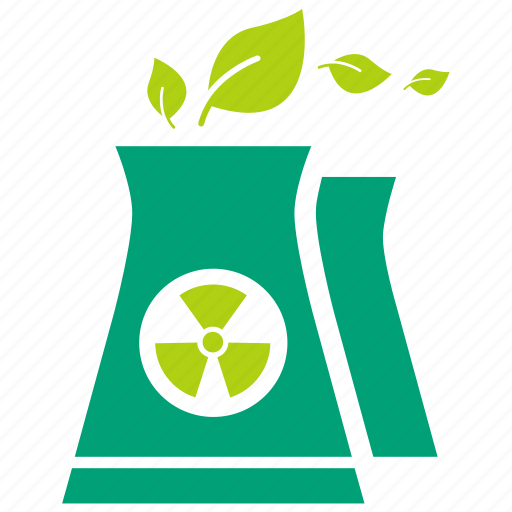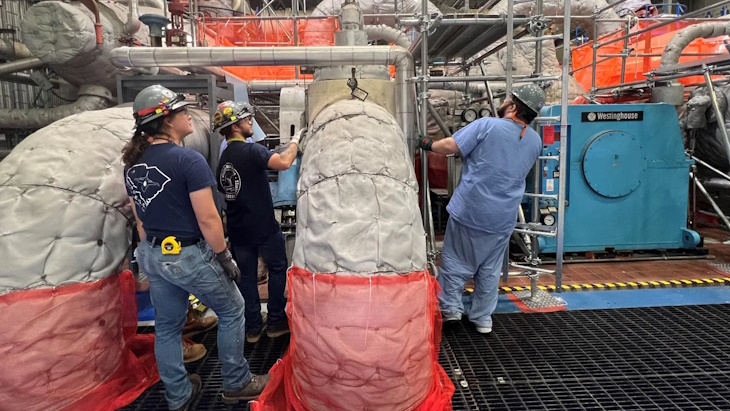The US Department of Energy has finalised a USD1.52 billion loan guarantee for Holtec International’s project to recommission the single-unit pressurised water reactor, and the Department of Agriculture has issued USD1.3 billion in grants to two rural electric cooperatives that will purchase power from the restarted plant.
The Department of Energy (DOE) conditionally committed to the loan guarantee in March. Today’s announcement is the first closing of a loan guarantee through the Energy Infrastructure Reinvestment (EIR) programme under Title 17 Clean Energy Financing Section 1706, first authorised and appropriated under the US Inflation Reduction Act. The EIR programme can finance “projects that retool, repower, repurpose, or replace energy infrastructure that has ceased operations or enable operating energy infrastructure to avoid, reduce, utilize, or sequester air pollutants or greenhouse gas emissions”. According to the DOE, USD52.8 billion in Section 1706 (EIR) projects have been submitted to date or are expected to be submitted in the next 120 days.
“This project will bring a retired nuclear power plant back to life for the first time in American history and deliver reliable, affordable clean power to rural areas in Michigan, Wisconsin, Indiana and Illinois - showing how the Inflation Reduction Act is revitalising communities across the Midwest,” said John Podesta, Senior Advisor to the President for International Climate Policy. “Today’s investments will create good-paying, union jobs - many of them for workers who’ve been at the plant for more than two decades.”
The single-unit pressurised water reactor, on the shores of Lake Michigan, ceased operations in May 2022. Holtec agreed to purchase the 800 MWe unit from then-owner and operator Entergy in 2018, ahead of the scheduled closure, for decommissioning, completing the acquisition in June 2022. But the company then announced plans to apply for federal funding to enable it to reopen the plant.
Last year, Holtec signed a long-term power purchase agreement with Michigan non-profit Wolverine Power Cooperative to purchase two-thirds of the power generated from a reopened Palisades, with Wolverine’s partner Hoosier Energy, which supplies member electric cooperatives across Indiana and Illinois, purchasing the balance. Shortly afterwards - in October 2023 - Holtec formally began the process of seeking reauthorisation from the US Nuclear Regulatory Commission to restart Palisades.
Earlier this month, Wolverine and Hoosier were among 16 rural electrical cooperatives announced by the US Department of Agriculture (USDA) to receive a share of more than USD7.3 billion in financing for rural electric cooperatives to build clean energy for rural communities across the country through its Empowering Rural America (New ERA) programme. Today, the USDA announced the award of more than USD650 million to Wolverine and USD675 million to Hoosier. Hoosier is to use the funding to help it procure 369 MWe of nuclear energy through the restart of Palisades and 250 MWe of renewable energy annually, while Wolverine will use its New ERA investment to purchase 435 MW of power from the plant.
According to Wolverine, the project to restart Palisades will reduce carbon emissions by nearly 2 million tonnes annually, putting the cooperative’s members on track to reach 100 percent carbon-free energy before 2030, as well as “restoring and maintaining” a highly-skilled workforce of 600 and supporting key initiatives that will benefit local communities for decades to come.
In an update published on 18 September, Holtec said the programme to restart Palisades is now in the inspections and maintenance phase and on schedule. The company has previously said it is aiming to repower the plant by the end of 2025.
“This loan is more than just a financial transaction: it is a signal of confidence in the vital role that nuclear energy will play in securing a clean, sustainable, and reliable energy future,” Kris Singh, founder and CEO of Holtec International, said. Singh’s words were reported by Power magazine.


